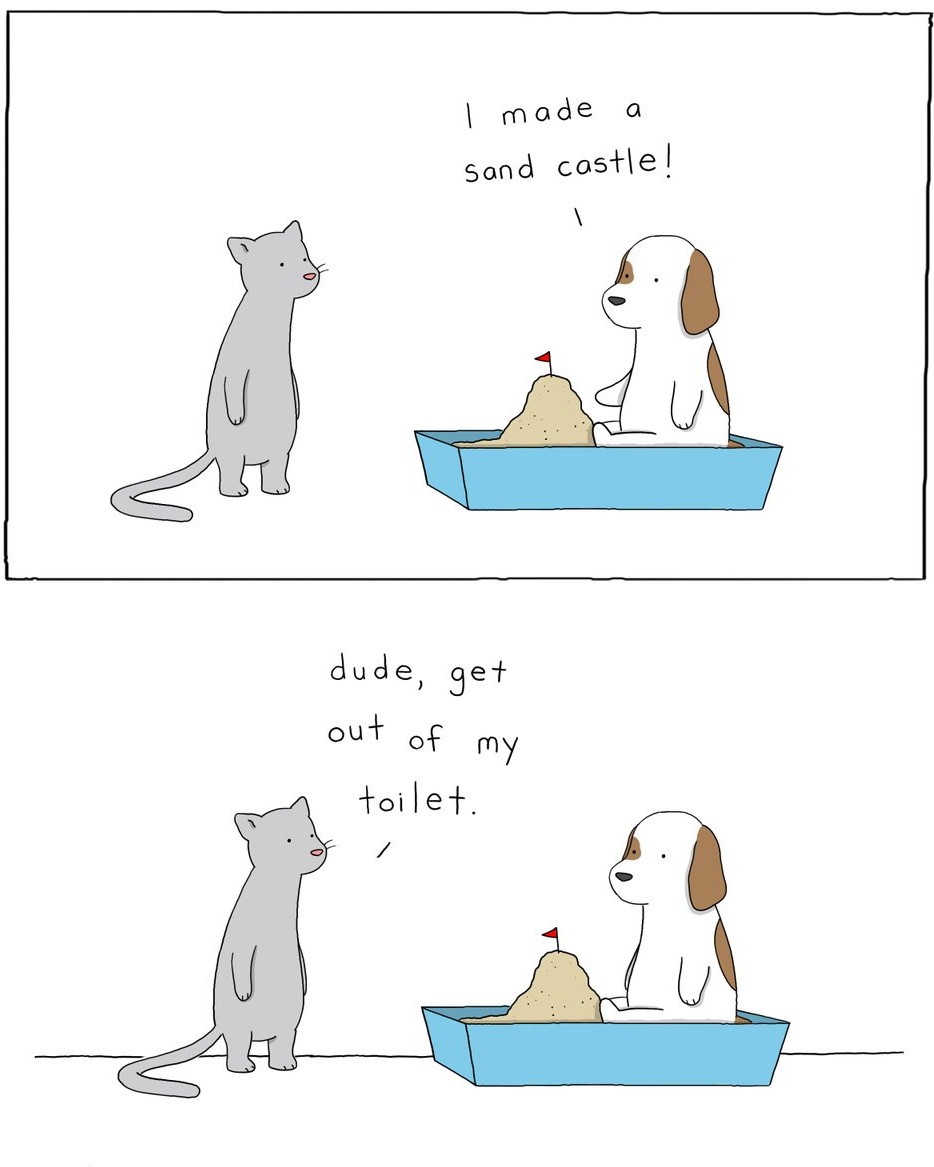Can My Pet Make Me Sick?
Home / Gaia Toast / Can My Pet Make Me Sick?
“Anyone and anything can make you sick if you don’t observe basic hygiene. That doesn’t mean you should give up your pets though. You'll be just fine as long as you are aware of the sources of these infections, and ensure your pets are up to date with their vaccines and preventive medications.” - Dr Arman Chen, Veterinary Surgeon & Practice Manager, Gaia Vets
*Note: This is not a comprehensive or definitive list, and covers more common illnesses.
Stuff You Won’t Catch From Your Pet
To dispel some of the fears, here are some illnesses which you won’t catch from your pet:
1) Common colds and upper respiratory diseases caused by viruses, e.g. Canine Bordetella (Kennel Cough) and Feline Bordetella. You can’t contract these common cold viruses which are contagious within their species. Similarly, you can’t pass your cold to your pet.
2) Canine Parvovirus. Contagious and causes severe vomiting and bloody diarrhoea in dogs but non-zoonotic.
3) Feline Immunodeficiency Virus (FIV). This virus belongs to the same group as HIV which affects humans, but FIV cannot be passed to people.
“We need to evaluate the likelihood of catching these diseases. In many cases, people can catch the disease but it is very rare. For instance, heartworms which are transmitted by mosquitoes can affect people, but they don’t have the same serious impact in humans as in pets.
Another example is rabies, which is fatal to humans. But we are lucky enough to live in a rabies-free country, which means you can’t catch rabies from your pet as long as they are purchased or adopted from licensed pet shops and shelters.” - Dr Claire Tan, Chief Veterinary Surgeon, Gaia Vets
Stuff You Can Catch From Your Pet
Covering a broad range of bacteria, viruses, parasites and worms which you can catch from an infected pet:
1) Campylobacteriosis
Culprit: Bacteria, Campylobacter
Transmission: Via faecal-oral route
Source: Poop of infected cats or dogs
Effects: Abdominal pain, cramping, diarrhoea and fever.
2) Cutaneous Larva Migrans (CLM)
Culprit: Zoonotic hookworm larvae e.g. Ancylostoma caninum, Ancylostoma braziliense, Uncinaria stenocephala
Transmission: Contact with poop of infected dog where the larvae can enter the top layers of skin
Source: Poop of infected cats or dogs
Effects: Itch and skin inflammation.
3) Infection from Intestinal Worms
Culprit: Roundworms, Toxocara spp
Transmission: Faecal-oral route
Source: Poop of infected cats or dogs
Effects: Fever, rash, cough or wheezing, abdominal pain, poor appetite, vision problems. Kids are especially susceptible since they tend to put stuff into their mouths.
4) Skin Fungal Infection
Culprit: Ringworm (yes, this is not a worm but a fungus that is highly contagious)
Transmission and source: Direct contact with infected pet
Effects: Skin inflammation with a distinctive ring-like pattern. Do note that contact with ringworm does not always result in an infection, especially for healthy individuals with good hygiene habits.
5) Salmonellosis
Culprit: Bacteria, Salmonella group
Transmission: Oral route
Source: Commonly found on skin and shell surfaces of terrapins
Effects: Abdominal pain, cramping, diarrhoea and fever. Fatal in severe cases especially in immunocompromised individuals
Many serotypes of this bacteria exist and multiple sources (aside from pets) can make you sick. Pets such as amphibians and reptiles tend to harbour this bacteria.
6) Toxoplasmosis
Culprit: Parasite, Toxoplasma gondii
Transmission: Faecal-oral route
Source: Poop of infected cats or dogs
Effects: Swollen glands and muscle aches and pains but can become more severe, causing damage to the brain and other organs. Immunocompromised individuals e.g. pregnant ladies should practice good hygiene habits, clear any poo within 24 hours, wear gloves when doing so or better yet, delegate your spouse to do the doody duty!
7) Leptospirosis
Culprit: Bacteria, Leptospira
Transmission: Oral route
Source: Urine of infected cats or dogs
Effects: fevers, chills, headaches, and vomiting. In severe cases, this infection can lead to kidney and liver damage.
8) Bird Flu or Avian Influenza
Culprit: Virus, Influenza A viruses
Transmission: Faecal-oral route
Source: Poop of birds
Effects: Flu-like symptoms and severe respiratory diseases which can lead to death.
Bird flu is nothing to worry about if you keep a pet bird that is not wild-caught and obtained from legal sources. Singapore at the time of this article’s writing is free from bird-flu. Wild birds such as ducks, geese etc. are generally the ones which carry the viruses. For more information, click here.
What You Can Do About It
It all comes down to prevention and hygiene mainly. Here are some things you and your family can do to prevent the spread of diseases from your pet:
Many of the diseases mentioned can be prevented via regular vaccinations and using preventive medication. So make sure your pet is taken care of and up till date with these routine procedures. Check out this list of vaccines for cats and dogs.
Bringing your pets for regular health checks means your vet can catch subtle symptoms and treat them for infectious diseases quickly.
Only buy or adopt your pets from licensed pet shops and shelters. Illegal wildlife trade is very real even in Singapore. You may unknowingly buy a pet that is trapped from the wild and they could harbour unknown and infectious diseases.
Wash your hands after playing with your pet or coming into contact with their saliva and faeces. This is especially important for family members who may be immunocompromised e.g. kids, the elderly and pregnant ladies
Comic Credit: Liz Climo
Pick up, clear and dispose of your pet’s poo and clean the area thoroughly to prevent possible spread. Clear litter trays regularly.
Don’t kiss or share the bed with your pet.
Avoid being scratched or bitten. If you do get scratched or bitten, make sure your wound is immediately cleaned under running water, and consult a doctor quickly. Never, ever let your dog lick your wounds.

